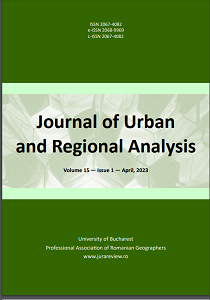THE IMPACT OF ECONOMIC, POLITICAL, AND INSTITUTIONAL FACTORS ON BUDGET BALANCES OF THE HEAVILY INDEBTED EUROPEAN COUNTRIES
THE IMPACT OF ECONOMIC, POLITICAL, AND INSTITUTIONAL FACTORS ON BUDGET BALANCES OF THE HEAVILY INDEBTED EUROPEAN COUNTRIES
Author(s): George Petrakos, Konstantinos Rontos, Luca Salvati, Chara Vavoura, Ioannis VavourasSubject(s): Public Administration, Political economy, Public Finances, Socio-Economic Research
Published by: Editura Universitară
Keywords: budget balance; current account balance; public debt; Excessive Deficit Procedure; Southern European countries;
Summary/Abstract: The present study identifies socioeconomic, political, and institutional factors that shape extensive budget unbalances in four European Mediterranean countries (Portugal, Italy, Greece, and Spain), causing significant deficits and a public debt equal to (or above) 120% of their respective Gross Domestic Product at the end of 2020. The regression analysis, run on official statistics, demonstrates that the dynamics of fiscal deficits in these countries are largely heterogeneous. This outcome suggests that the various factors and contexts considered here exert different effects in each country. Political factors played an important role in Greece, being less important in Spain, and having a negligible role in both Italy and Portugal. On the contrary, institutional factors were recognized as particularly important in Greece, Italy, and Portugal. Although important almost everywhere, the magnitude of the impact of economic factors also differed across the four countries.
Journal: Journal of Urban and Regional Analysis
- Issue Year: 15/2023
- Issue No: 1
- Page Range: 81-103
- Page Count: 23
- Language: English

